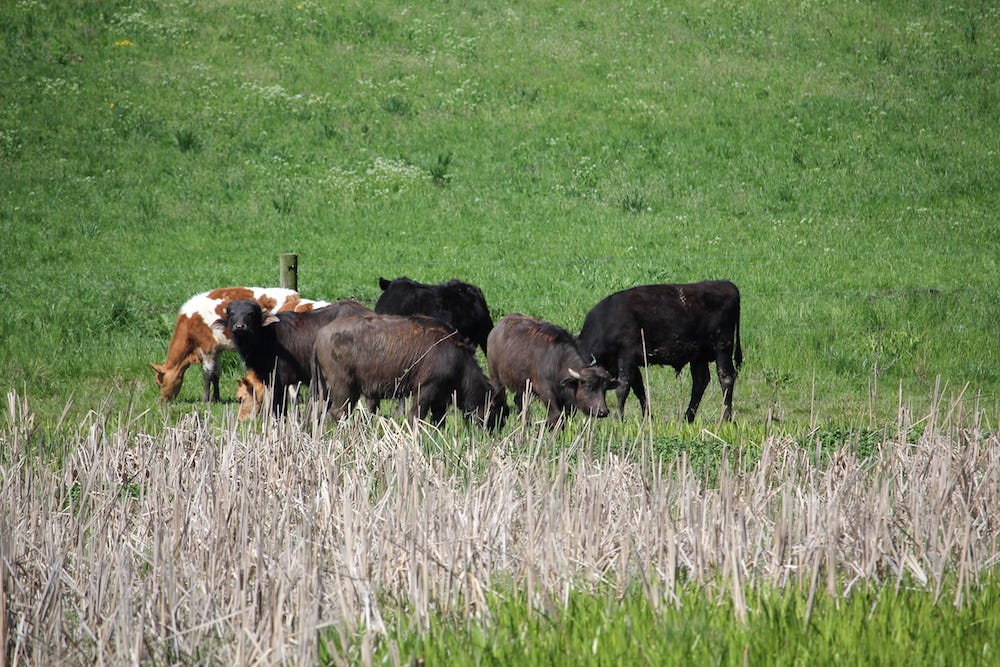Healthy food isn’t any more expensive than other things. We are simply used to cheap food.
Health is energetically expensive. It takes commitment. It takes prioritizing it in our lives. In our modern era, it takes being meaningful about where you live, how you live, how you eat, and how you move. For most of humanity, humans moved constantly. We ate where we lived. We had energetically “expensive” lives and livelihoods. It took effort to produce our food–whether that was through agriculture or hunting and fishing and gathering. Food never just appeared.
Most of us no longer participate in our own food production. We have become complicit in the degradation of body, mind and soil. Without proper soil, we will not have proper nutrition. It truly all starts in the soil.
Our modern marketers have convinced women–and now entire subcultures of men–that they can become more appealing not by strengthening and bringing health to their bodies, but by applying toxic chemicals to their nails, hair and skin. This illusion of beauty and health is enough to satisfy many.
But it is this continued separation of body and that which nourishes the body that keeps us in a perpetual cycle of degradation–both of our bodies and of the soil that we depend upon for life.
As Wendell Berry puts it in his book The Unsettling of America:
“It is clear to anyone who looks carefully at any crowd that we are wasting our bodies exactly as we are wasting our land. Our bodies are fat, weak, joyless, sickly, ugly, the virtual prey of the manufacturers of medicine and cosmetics. Our bodies have become marginal. They’re growing useless like our marginal land because we have less and less use for them. After the games and idle flourishes of modern youth, we use them only as shipping cartons to transport our brains and our few employable muscles back and forth to work. As for our spirits, they seem more and more to comfort themselves by buying things. No longer in need of the exalted drama of grief and joy, they feed now on little shocks of greed, scandal and violence.”
It is a denial of sorts, that our modern marketing works hard to convince people that our health doesn’t matter through the constant bombardment of ads related to fast food, soda, cheap food and toxic chemicals that we can apply to our bodies, our lawns, our homes and beyond. And yet, then try to convince us that our health matters and we must spend tens of thousands of dollars on “health care” when we become diseased and chronically ill.
There is no result without effort. There is no shortcut to wellness. You must do the expensive thing–in our modern economy this means an exchange of money in addition to the increased effort it takes to eat food produced on healthy soils, to be part of the production cycle, to move confidently and intentionally, and to sleep according to our needs.
Good, clean, local food is not “too expensive.” The other food is too cheap as it cheapens and weakens our bodies, minds, spirits, and soils. Investing in yourself means something more than what the marketers mean when they are convincing you to buy their “package.” Investment means that you are willing to acquire and prepare the food that is needed to save your own life, along with the soil. Investing in yourself means that you are willing to set aside the toxic chemicals so many of us ingest (and adorn our bodies with) and replace those adornments with meaningful movement, life-sustaining nutrients, mindfulness–the true building blocks of wellness.
The solutions always come full circle: being intentional about your wellness goes hand in hand with caring for the soil, our ecosystems and our communities. Investing in yourself via your own food production, and local, healthy food from regenerative farms is the greatest win-win-win you can engage in. Plus, it’s delicious!







When I'm working the soil, I feel like I am doing exactly what I was meant to do. There are no conflicting priorities. I feel truly fulfilled.